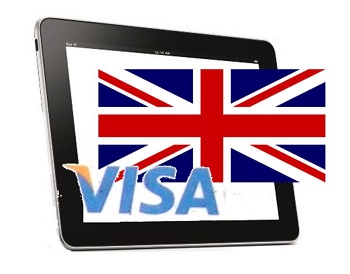The acquisition has now been officially announced, saying that one shareholder will make it “faster”.
O2 has now released an official confirmation of its acquisition of the Weve mobile marketing venture that it had previously shared jointly with two other primary participants: Vodafone and EE.
The upcoming buyout of O2 is believed to have put somewhat of a rush on this acquisition.
O2 is preparing to be bought out by Hutchison Whampoa, and in this acquisition, it will be taking on the rest of the Weve deal, allowing Vodafone and EE to step out of the previous partnership. Weve will soon be proceeding forward exclusively as a subsidiary of O2. The mobile operator is going to keep up its ability for leveraging its customer data in order to provide the legs for the platform. Moreover, it will be adding another 20 million opt-ins for the platform, which will be gleaned from the 6 million Priority customers and 14 million O2 WiFi customers.
This will make it possible for the platform to be able to provide highly targeted mobile marketing.
 The initial launch of Weve as a mobile advertising and wallet joint venture among the three giants occurred near the end of 2014. At that time, it was already boasting a massive customer database of a combined 20 million people. That was built upon the databases of all three of the partners in the project. Together, the three held a share of 80 percent market share. It wasn’t long before the mobile wallet component of the business was dropped and they proceeded with the marketing element.
The initial launch of Weve as a mobile advertising and wallet joint venture among the three giants occurred near the end of 2014. At that time, it was already boasting a massive customer database of a combined 20 million people. That was built upon the databases of all three of the partners in the project. Together, the three held a share of 80 percent market share. It wasn’t long before the mobile wallet component of the business was dropped and they proceeded with the marketing element.
According to Weve, this latest move represents a “strategic re-evaluation” of itself, and as the three partners break away and it continues under O2, it will provide the company with the flexibility that it requires to move ahead at a pace that reflects the current market.
Digital director of O2, David Plumb, explained that Weve has been successful through its focus on mobile advertising. Since 2014, it has witnessed a year over year growth of an estimated 45 percent. He added that there is still a great deal more room for growth, as “The UK mobile digital advertising market is big, growing by almost 100 per cent year on year to £850m in 2014.”
Visa will be launching its mobile payments platform in the UK in June of this year
Visa has announced that it will be expanding its mobile payments service in Europe. Visa Europe has formed numerous partnerships with retailers and merchants in the United Kingdom, where mobile payments are beginning to gain momentum. The company has also formed partnerships with British banks in order to better compete with other mobile payment platforms that have launched in the country. Visa plans to launch its expanded service in the United Kingdom in June of this year, with 60,000 people being able to use the service at that time.
Digital wallet helps make payments more convenient
Visa’s mobile payments platform, which serves as a digital wallet, was initially launched in 2013. The platform allows users to make purchases online without having to provide their financial information more than once. One of the attractive features of the platform its use of digital tokens, which are used in place of financial information, making mobile transactions more secure. Visa suggests that its platform is more convenient than others, as it can save consumers time when making a purchase online.
Mobile spending is on the rise in the United Kingdom
 According to a recent report from Barclays, consumers in the United Kingdom are expected to spend more than $60 billion a year using their smartphones and tablets by 2024. Last year, British consumers spent a combined $10 billion from their mobile devices. Mobile payments are becoming a more attractive option to consumers in the UK, largely due to how convenient nature of mobile commerce and the services that are being offered by numerous companies participating in this space.
According to a recent report from Barclays, consumers in the United Kingdom are expected to spend more than $60 billion a year using their smartphones and tablets by 2024. Last year, British consumers spent a combined $10 billion from their mobile devices. Mobile payments are becoming a more attractive option to consumers in the UK, largely due to how convenient nature of mobile commerce and the services that are being offered by numerous companies participating in this space.
Security concerns lead to better protection for consumers
Though mobile payments are becoming more popular, there are security concerns that could slow its growth and adoption. Visa has been working to address these security concerns, using tokenization as a way to protect consumers and their financial information. Biometric technology, such as fingerprint scanners are also becoming more important in the mobile space, as this technology can be used to provide more protection to the mobile commerce space.
 The initial launch of Weve as a mobile advertising and wallet joint venture among the three giants occurred near the end of 2014. At that time, it was already boasting a massive customer database of a combined 20 million people. That was built upon the databases of all three of the partners in the project. Together, the three held a share of 80 percent market share. It wasn’t long before the mobile wallet component of the business was dropped and they proceeded with the marketing element.
The initial launch of Weve as a mobile advertising and wallet joint venture among the three giants occurred near the end of 2014. At that time, it was already boasting a massive customer database of a combined 20 million people. That was built upon the databases of all three of the partners in the project. Together, the three held a share of 80 percent market share. It wasn’t long before the mobile wallet component of the business was dropped and they proceeded with the marketing element.
 According to a recent report from Barclays, consumers in the United Kingdom are expected to spend more than $60 billion a year using their
According to a recent report from Barclays, consumers in the United Kingdom are expected to spend more than $60 billion a year using their 